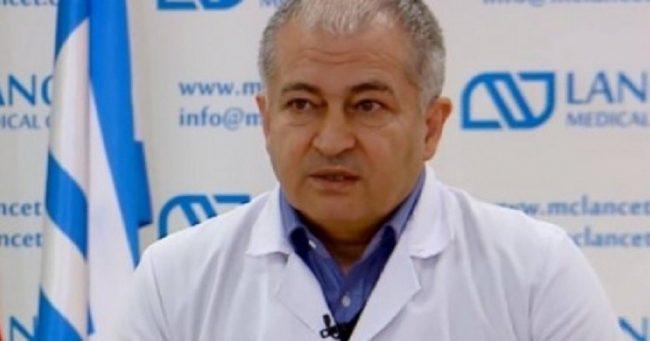
 A Georgian citizen of Azerbaijani descent on trial for fraud in Georgia has claimed that the charges against him are fabricated, and that his detention was orchestrated by the same group who he alleges abducted Azerbaijani journalist Afgan Mukhtarli from Tbilisi on 29 May.
A Georgian citizen of Azerbaijani descent on trial for fraud in Georgia has claimed that the charges against him are fabricated, and that his detention was orchestrated by the same group who he alleges abducted Azerbaijani journalist Afgan Mukhtarli from Tbilisi on 29 May.
In an open letter dated 3 July, published three days later by Georgian news agency Interpressnews, Farman Jeyranli, 59, said he would give names of the leaders of what he called a ‘group of Georgian nationals, who sold their fellow citizen to Aliyev’s regime’. He said would provide names and ‘uncover the plot against him’ at his trial on 12 July.
[For details of Afgan Mukhtarli’s abduction, read on OC Media: Tbilisi-based Azerbaijani journalist abducted to Azerbaijan]
Jeyranli was arrested on 20 May accused of ‘extorting a large sum of money from a patient through deception and hiding information dangerous to the patient’s health’. He was denied a ₾100,000 request for bail.
Jeyranli has denied the charges against him, claiming to be a ‘personal hostage of Azerbaijani dictator Ilham Aliyev’.
On 4 May, Jeyranli was named alongside several prominent Azerbaijani opposition activists and journalists in exile, including Mukhtarli and opposition politician Gozal Bayramli, in an article on pro–Azerbaijani Government news website Haqqin, which portrayed Tbilisi as a nest of anti-Azerbaijani subversion. Bayramli was arrested by Azerbaijani police while crossing from Georgia on 25 May.
Details of the prosecution
The case against Jeyranli involves a Tbilisi-based medical clinic which he founded, the Lancet.
The Tbilisi-based Human Rights Centre filed a case against the Lancet on 16 November 2016, for the death on 12 February 2016 of Giorgi Chubinidze, who had received a liver transplant.
According to the Human Rights Centre, Chubinidze had suffered from liver problems for 7 years, but after repeated consultations with doctors in Spain, was told he would not need treatment in the next 6 months.
‘However, the doctors in the Lancet tried to convince him that he did not have time to hesitate’, they said. The Lancet is accused of deceiving Chubinidze into taking out a $40,000 loan to pay for treatment.
Jeyranli, however, claims that he is not the director of the clinic, as the Prosecutor’s Office alleges.
According to the Human Rights Centre, the loan agreement in question names only Giorgi Archvadze, an employee of the Lancet, and does not mention either the clinic or Jeyranli.
The Lancet Clinic had it’s license for carrying out organ transplants revoked by the Ministry of Health in November, after the case came to light.




 7 July 2017
7 July 2017


